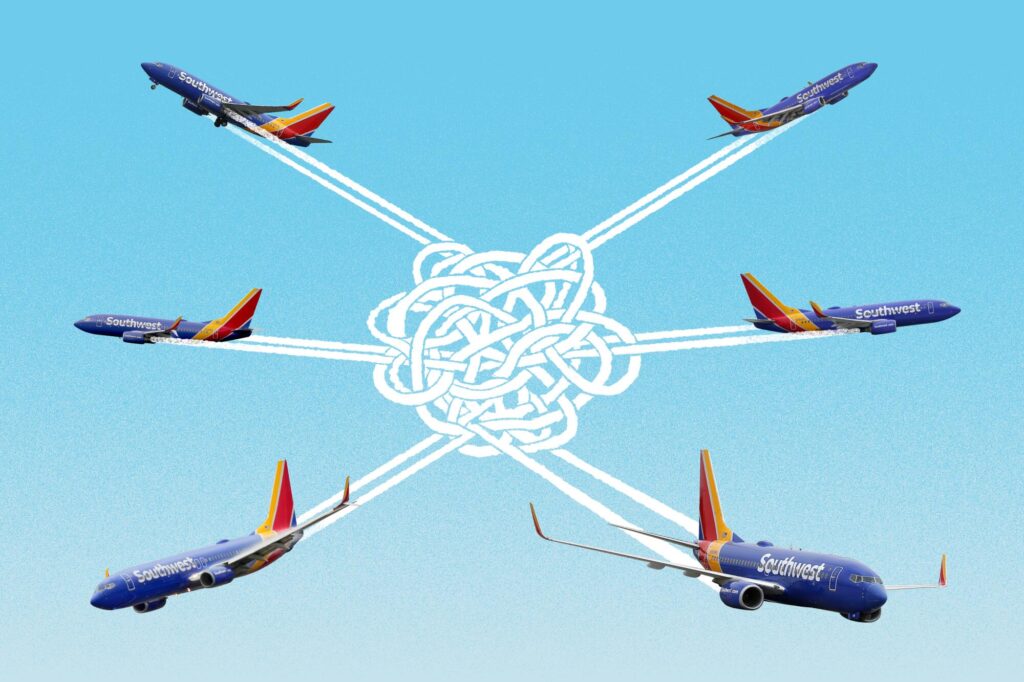Airlines Soar Back to Normalcy After Massive IT Meltdown Grounds Flights Worldwide
VICTOR KIPCHUMBA July 20, 2024 0
After canceling nearly 17,000 December flights, Southwest Airlines is working to repair its flight network and reputation.
Overview of the IT Failure
Airlines worldwide began resuming their services on Saturday after a massive IT failure threw global operations into disarray. This disruption, one of the largest in recent years, was caused by a problematic update to an antivirus program by CrowdStrike. The glitch significantly impacted airlines, banks, and financial institutions globally.
Airport Disruptions and Passenger Impact
On Friday, airports saw large crowds as passengers waited for updates amid numerous flight cancellations. The update to a Microsoft Windows program caused a worldwide systems outage. Consequently, operators struggled to maintain flight schedules.
Several US airlines and airports across Asia began resuming their operations. Major hubs like Hong Kong, South Korea, and Thailand reported the restoration of check-in services. By Saturday afternoon, airports in India, Indonesia, and Singapore were largely returning to normal.
Restoration of Services
“Check-in systems have returned to normal at Thailand’s top five airports. We no longer see the long queues from yesterday,” stated Keerati Kitmanawat, president of Airports of Thailand, at a press conference at Don Mueang Airport in Bangkok.
Microsoft reported that the issue began at 1900 GMT on Thursday, affecting users of CrowdStrike Falcon cybersecurity software. CrowdStrike quickly issued a fix for the issue. CEO George Kurtz offered his personal apologies to all affected parties during an interview with CNBC.
Government and Company Responses
The administration of President Joe Biden engaged with CrowdStrike and other affected entities. The White House affirmed that the team was prepared to offer support if necessary. A senior US official noted, “Flight operations have resumed nationwide, although some delays remain.”
Reports from the Netherlands and Britain suggested that health services might have suffered due to the outage. Thus, the full extent of the IT failure’s impact might still be emerging.
Media and Financial Sector Disruptions
The media sector also faced significant challenges. Sky News in Britain reported that the glitch interrupted its Friday morning news broadcasts. Similarly, Australia’s ABC experienced major difficulties due to the outage. By Saturday, most services in Australia had been restored, though Sydney Airport continued to experience flight delays.
Banks in Kenya and Ukraine encountered disruptions to their digital services. Additionally, some mobile carriers faced problems, and customer service operations across various companies were affected.
Flight Disruptions and Manual Check-ins
The scale of this outage, according to Junade Ali, a member of the Institution of Engineering and Technology, is unprecedented. He noted that the last comparable event occurred in 2017. While some airports had to suspend all flights, others implemented manual check-ins, resulting in long lines and frustrated travelers.
The Federal Aviation Administration (FAA) initially ordered a nationwide halt of flights. However, airlines quickly worked to restore services and address the backlog. India’s largest airline, Indigo, reported that operations were back online. The carrier noted that while systems had been restored, full normalcy would resume over the weekend.
Ongoing Recovery Efforts
Low-cost airline AirAsia announced it was still working to fix its departure control systems (DCS). The airline advised passengers to arrive early at airports and be prepared for manual check-in. Chinese state media confirmed that Beijing’s airports remained unaffected by the outage.
In Europe, major airports, including Berlin which had earlier suspended flights, began resuming both departures and arrivals.
Assessing the Damage and Looking Forward
As companies focused on repairing their systems, officials worked to reassure the public by ruling out foul play. CrowdStrike’s Kurtz assured that his teams were fully engaged and that a fix had been implemented. However, experts such as Oli Buckley from Loughborough University questioned the practicality of implementing an effective fix on such a large scale.
John McDermid, a professor at York University, suggested that the incident highlighted the need for a thorough reassessment of our dependence on a few technology companies for critical services. He recommended that infrastructure be designed to resist common cause failures to prevent similar widespread disruptions in the future.
The recent global IT failure exposed vulnerabilities in our interconnected systems and underscored the necessity of resilient technological infrastructure. As airlines and other sectors gradually return to normal, the incident serves as a crucial reminder of the need for enhanced safeguards against future disruptions.




